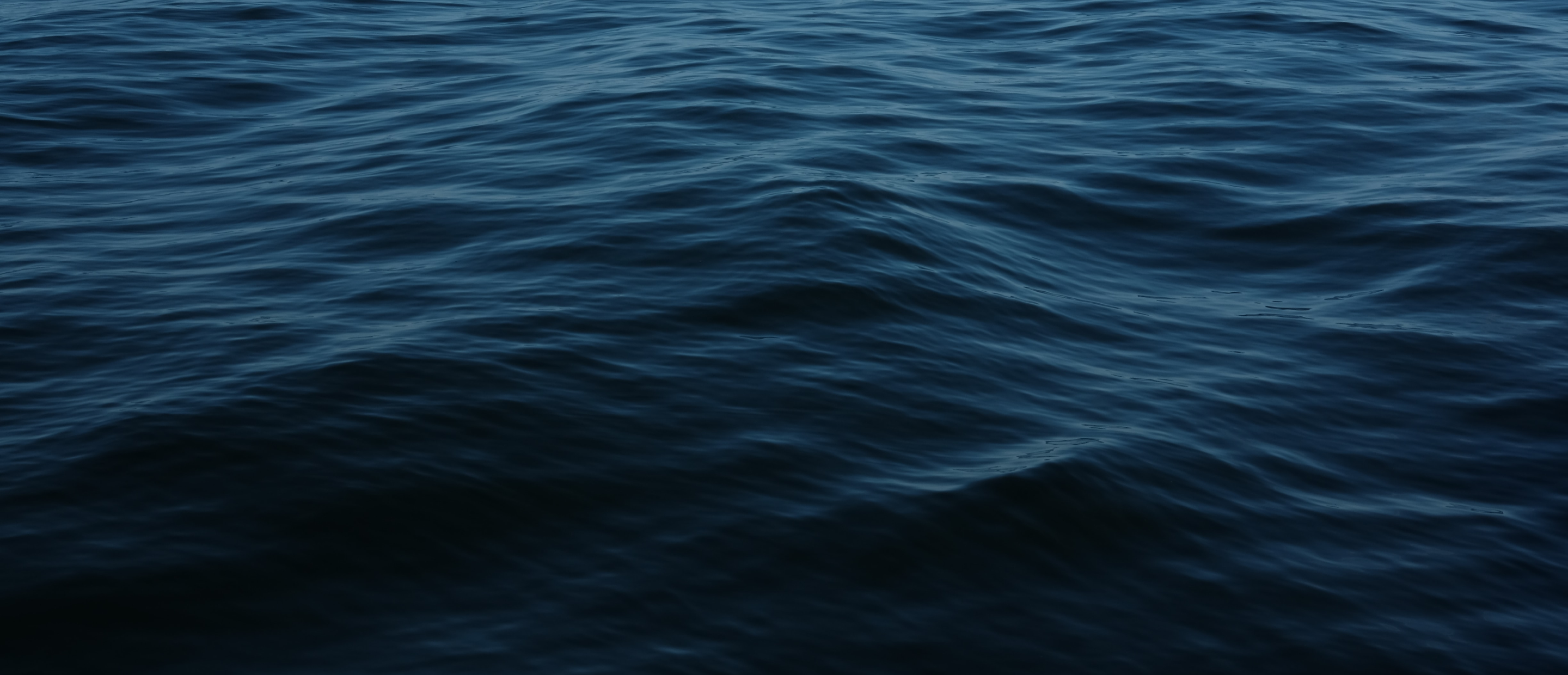Ocean Job Board


Fisheries and Oceans Canada
This job is no longer accepting applications
See open jobs at Fisheries and Oceans Canada.See open jobs similar to "MSc student - Arctic Salmon" Schmidt Marine.We are committed to providing an inclusive and barrier-free work environment, starting with the hiring process. If you need to be accommodated during any phase of the evaluation process, please use the Contact information below to request specialized accommodation. All information received in relation to accommodation will be kept confidential.
Fisheries and Oceans Canada and the Canadian Coast Guard are stronger and most effective when we reflect the diversity of the Canadian population we serve. In support of achieving a diversified workforce, first consideration may be given to candidates self-declaring as belonging to one of the following employment equity groups: Indigenous Peoples, Visible Minorities, Persons with Disabilities, and Women. As part of your application to this selection process, we invite you to self-declare which employment equity group(s) you belong to. To learn more, visit our website on Self-declaring for Government of Canada jobs. https://www.canada.ca/en/services/jobs/opportunities/government/self-declaring-government-canada-jobs.html
This project, which is focused in the western Canadian Arctic, will directly address community-driven questions about the impacts of climate change on food security. Pacific salmon, which have been collaboratively monitored by DFO and Indigenous communities during their range expansion across multiple settled land claims in the Canadian Arctic since 2000, are harbingers of broader ecosystem changes in a rapidly warming Arctic. To explore the vulnerability of Arctic species and ecosystems to environmental conditions that facilitate these northward distributional shifts of salmon, we focus on the concerns of Indigenous communities and co-management partners about vagrant fish caught in subsistence harvests, namely: 1) MSc #1: the potential competition for food among salmon and culturally-important fishes (Arctic char and Dolly Varden); 2) MSc #2: the potential cumulative stress on the Arctic ecosystem both of more salmon and of more frequent conditions facilitating northward expansion of their range.
There are up to 2 MSc positions available. One candidate (MSc #1) will be required to be registered as a MSc student in the Department of Biology at the University of Manitoba under the joint supervision of Dr. Gail Davoren (Ph. D.) and Dr. Karen Dunmall (Ph. D.) (Fisheries and Oceans Canada, Arctic Region). One candidate (MSc #2) will be required to be registered as a MSc student in the Department of Environment and Geography, University of Manitoba, under the joint supervision of Dr. Jens Ehn (Ph. D) and Dr. Andrea Niemi (Ph. D) (Fisheries and Oceans Canada, Arctic Region).
When submitting an application to this selection process, you will be prompted to answer screening questions concerning the essential education and experience qualifications and, if applicable, other (non-essential) qualifications. When answering these questions, please provide detailed, concrete examples that clearly demonstrate how you meet the requirement. Failure to clearly substantiate how you meet the screening criteria may result in the rejection of your application. Candidates will not be solicited for incomplete or possible missing information.
- Participate in Arctic Salmon, a community-based program monitoring the occurrence of salmon in subsistence fisheries across the Canadian Arctic, through assisting in coordination, outreach, and reporting.
- Complete analyses related to assessing ecosystem-level change and species interaction when salmon are present in the western Canadian Arctic. This includes MSc #1: assessing diet metrics (stomach contents, stable isotopes) among salmon and key Arctic fishes to understand potential for habitat and diet overlap in the marine environment; or MSc #2: working with remotely sensed ice-ocean data and existing oceanographic and biological data from the western Canadian Arctic to assess ecosystem-level changes in years when salmon are present. Note that both MSc projects will rely on archived samples and data; fieldwork may be possible but is not guaranteed.
- Interact with community members across Inuit Nunangat by answering questions, addressing concerns, and presenting results on an annual basis.
- Present main study results on an annual basis at National and International conferences as opportunities arise and funding allows.
- Analyze and interpret data, and publish results in government reports and peer-reviewed journals.
These positions are located in Winnipeg and will be affiliated with the Arctic Aquatic Research Division of Fisheries and Oceans Canada (DFO), which is based at the Freshwater Institute in Winnipeg, Manitoba. The Division provides information and advice to support the management of Arctic fisheries resources, their habitat and Marine Protected Areas (MPA) in the Northwest Territories and Nunavut, and on the Yukon North Slope. Successful management and conservation of these resources depends on acquiring, interpreting and sharing biological information, the processes affecting them and the ecosystem of which they are part. The MSc students enrolled in this project will also need to fulfill the program requirements for MSc graduate studies at the Faculty of Graduate Studies (https://umanitoba.ca/graduate-studies/) and respective Departments of Biological Sciences (https://umanitoba.ca/explore/programs-of-study/biological-sciences-msc); and Environment and Geography (https://umanitoba.ca/explore/programs-of-study/environment-and-geography-msc).
The intent is to staff two Master’s student positions. Ideally, the student is willing to start the work term on January 6, 2025. However, students interested in this position but unable to start in January 2025 are still encouraged to apply. It is expected that the student will work approximately 22.5 hours per week. This work term will end on March 31, 2027.
A pool of candidates may be established and may be used to staff similar positions in the future.
Positions to be filled: 2
Your résumé.
A covering letter "(maximum one page) demonstrating fit and interest with the position, and indicating which MSc position you are applying for."
Eligibility
You are eligible for this program if you meet these 3 requirements:
• You are a full-time student in a post-secondary institution
• You are enrolled in an academic program that requires research as part of your curriculum
• You meet the minimum age required in the province/territory of work
This includes students with physical or emotional disabilities deemed to have full-time status by their academic institution. Adult students registered in education and retraining programs at the secondary level may also be eligible for student employment programs. See our site for additional details.
Contact information for 2 references.
Possess a BSc or BA in environmental science or studies, geography, sociology, anthropology, biology, interdisciplinary degree, or related field from a recognized post-secondary institution.
Currently enrolled or willing to enroll in a MSc program at University of Manitoba, with a specialization in Biology (MSc #1) or Environment and Geography (MSc #2).
- Experience collecting, tabulating, analyzing or reporting scientific information
- Experience working with research teams
*In the context of student recruitment in the federal public service, experience can be acquired through studies, work experience or volunteer activities.
English essential
Information on language requirements
- Ability to effectively communicate in English both orally and in writing
- Effective interpersonal relationships
- Initiative
- Dependability
- Organized
Reliability Status security clearance
Note: Each student hired through the Research Affiliate Program (RAP) must meet the security requirements of the position as a condition of employment. Therefore, the student will be asked by the hiring organization to complete security-related documents.
- Valid Health Canada medical
- Willingness to travel and work from remote areas for up to a month
- Willingness to work on evenings and weekends on occasion
Maintaining your student status is a condition of employment. Once you have defended your thesis you are no longer eligible for the program.
The Public Service of Canada is committed to building a skilled and diverse workforce that reflects the Canadians we serve. We promote employment equity and encourage you to indicate if you belong to one of the designated groups when you apply.
Information on employment equity
Interviews may be conducted in Winnipeg, MB, or remotely by telephone. Candidates from outside the Federal Public Service will be required to pay for their own travel expenses.
Reference checks may be sought.
An alternative format (such as Braille) of this notice and Statement of Merit Criteria are available upon request.
Candidates invited to attend an interview will be required to bring proof of their education credentials, in the form of a diploma or official transcript (original documents only).
Candidates with foreign credentials must provide proof of Canadian equivalency. Consult the Canadian Information Centre for International Credentials for further information at http://www.cicic.ca/indexe.stm.
Candidates will be communicated with via e-mail. In your application, please include the e-mail address that you wish to use for communication purposes throughout this recruitment initiative. It is your responsibility to verify your e-mail account on a regular basis.
Persons with disabilities preventing them from applying on-line, are asked to contact us toll free at 1-800-645-5605 and press '0' for assistance.
Please apply online.
We thank all those who apply. Only those selected for further consideration will be contacted.
| Sarah McPhail, Human Resources Advisor |
|---|
| Sarah.McPhail@dfo-mpo.gc.ca |
This job is no longer accepting applications
See open jobs at Fisheries and Oceans Canada.See open jobs similar to "MSc student - Arctic Salmon" Schmidt Marine.